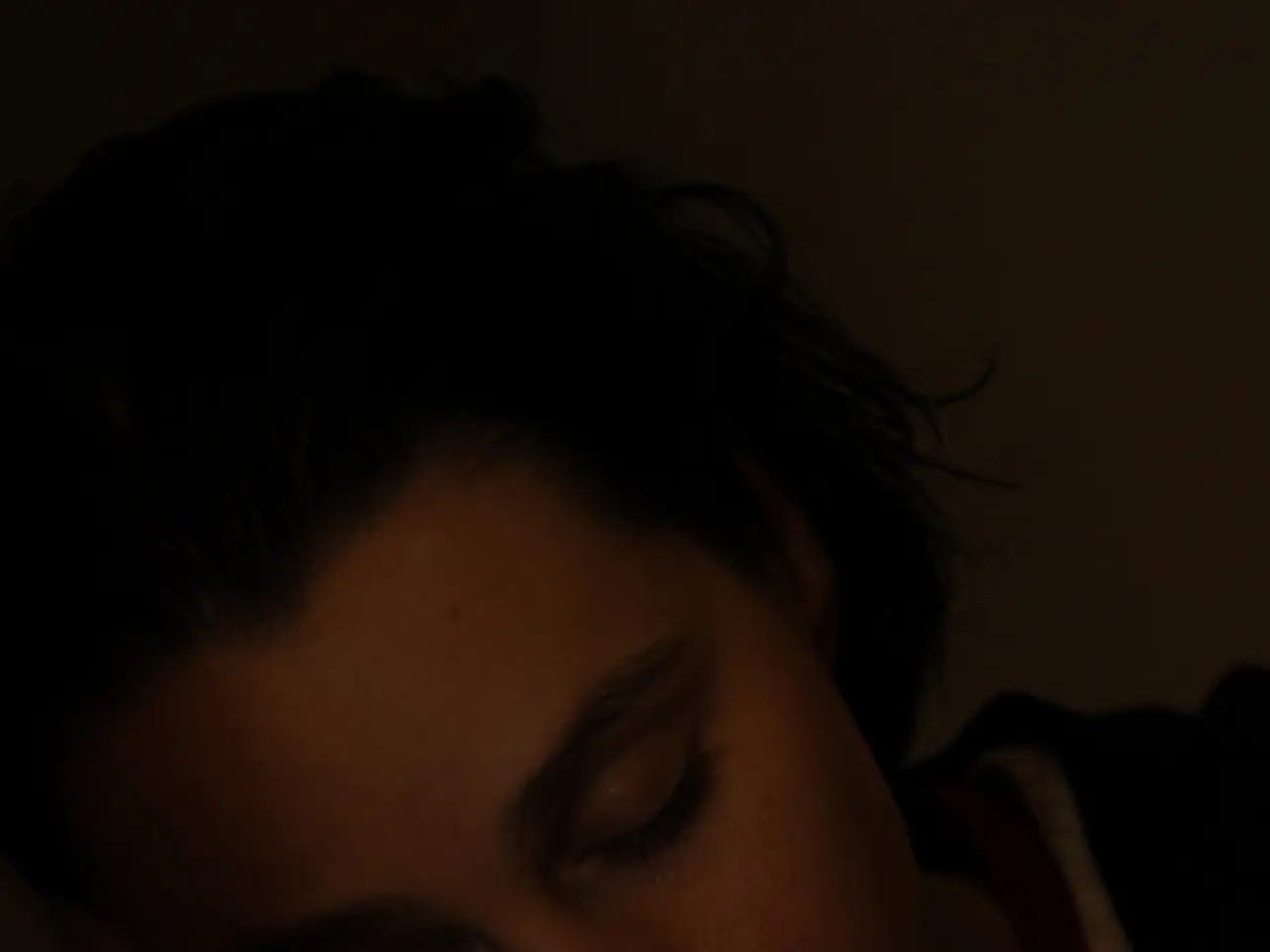Sleep Aids: Evaluating Their Efficacy and Additional Factors
In the quest for a good night's sleep, various sleep medications are available, each with its unique benefits and risks. This article explores three commonly prescribed sleep aids - Doxepin (Silenor), Temazepam (Restoril), and Ramelteon (Rozerem) - and their long-term effects.
Doxepin, a tricyclic antidepressant, is used in low doses for insomnia. Long-term use may lead to daytime drowsiness, cognitive impairment, anticholinergic effects such as dry mouth and constipation, and the potential for drug accumulation leading to toxicity, particularly in older adults. Sudden cessation may also result in withdrawal symptoms.
Temazepam, a benzodiazepine, is prescribed for short-term insomnia treatment. However, its long-term use carries more significant risks, including physical and psychological dependence, cognitive decline, memory problems, impaired psychomotor function, and the potential for complex sleep behaviors such as sleepwalking or sleep-driving. Withdrawal symptoms and rebound insomnia are also likely after cessation.
Ramelteon, a melatonin receptor agonist, is considered safer for long-term use than benzodiazepines. While it can cause dizziness, fatigue, and hormonal effects, its risk profile for abuse and cognitive impairment is lower. However, data on very long-term use is limited.
Common long-term risks shared by many sleep medications include daytime drowsiness, impaired memory, psychomotor slowing, dependence and withdrawal, cognitive impairments, unusual behaviors during sleep, risk of overdose, and anticholinergic effects.
Ramelteon's mechanism of action via melatonin receptors rather than general CNS depression makes it safer, with low abuse potential, making it preferable for long-term use when appropriate. On the other hand, Temazepam and similar benzodiazepines are generally recommended only for short-term use due to their significant risk of dependence, cognitive issues, and adverse physical effects with prolonged use.
In conclusion, the long-term use of these medications requires careful medical supervision to balance their benefits against the risks such as tolerance, dependence, cognitive decline, and impaired daytime function. Non-pharmacologic sleep approaches are recommended to avoid these risks when possible.
This assessment is consistent with known side effects across classes, supported by data about drug risks like zolpidem that share mechanisms with benzodiazepines and sedative hypnotics.
Other sleep medications and their side effects include: - Restoril (Temazepam) can cause a variety of side effects, including drowsiness, fatigue, headache, nausea, dizziness, dry mouth, vertigo, anxiety, depression, diarrhea, confusion, and nightmares. - Lunesta (Eszopiclone) may help a person fall and stay asleep, with side effects including dizziness, an unpleasant taste in the mouth, viral infections, headache, anxiety, dry mouth, rash, hallucinations, and sleepwalking or driving while asleep. - Halcion (Triazolam), another benzodiazepine, is used for the short-term treatment of insomnia, typically for 7 to 10 days. - People should limit their alcohol consumption when taking Desyrel (Trazodone), as it can increase the effects of alcohol. - The typical starting dose of Trazodone is 150 mg daily, divided into two doses, with a maximum daily dose of 400 mg. - Doxepin may cause side effects such as central nervous system depression, worsening depression or suicidal thoughts, and unusual thinking patterns and behavior changes. - Trazodone (Desyrel) is a medication that modulates the neurotransmitter serotonin, typically used to treat major depressive disorder but may be prescribed off-label to help a person fall asleep.
Alternative treatments and lifestyle changes for sleep problems include herbal remedies, relaxation techniques, healthy sleep habits, increased exercise, and cognitive behavioral therapy. Pregnant or nursing individuals should consult a doctor before using Doxepin.
- Doxepin, a tricyclic antidepressant, is used in low doses for insomnia, but long-term use may lead to macular degeneration, a type of age-related eye disease, due to its anticholinergic effects.
- Temazepam, a benzodiazepine, can cause both physical and mental health issues, including depression, bipolar disorder, and diabetes, with prolonged use.
- Ramelteon, a melatonin receptor agonist, may potentially lead to sleep-related organizational disorders such as insomnia and degeneration of mental health over long periods.
- Obesity and COPD (Chronic Obstructive Pulmonary Disease) have been Predictive health indices shown to have complex relationships with the use of various sleep medications, particularly with their long-term effects.
- Science has shown that sleep medications can have varying impacts on health-and-wellness, with side effects such as daytime drowsiness, impaired memory, and cognitive impairments being common.
- Non-pharmacologic sleep approaches, like lifestyle changes and alternative treatments, often provide a healthier approach to managing sleep problems as compared to the long-term use of sleep medications.
- In the health-and-wellness field, it's crucial to consider the potential side effects of sleep medications, even in cases where they seem to offer immediate relief, such as unusual behaviors during sleep or withdrawal symptoms.
- Mental-health issues such as depression and bipolar disorder can be exacerbated by some sleep medications, making it essential for individuals to work closely with healthcare providers to ensure proper management and monitoring of their medications.




